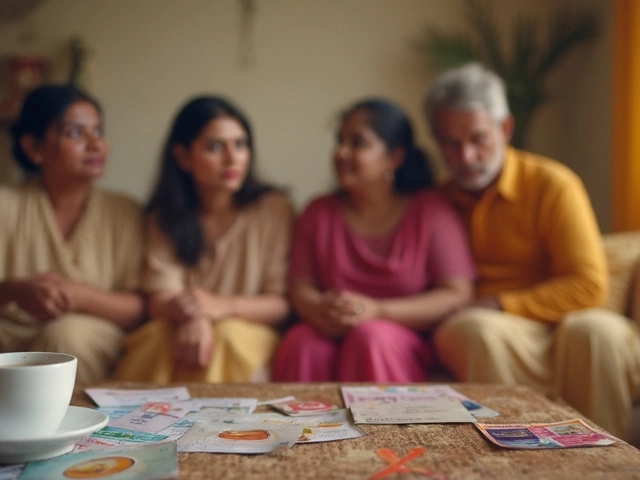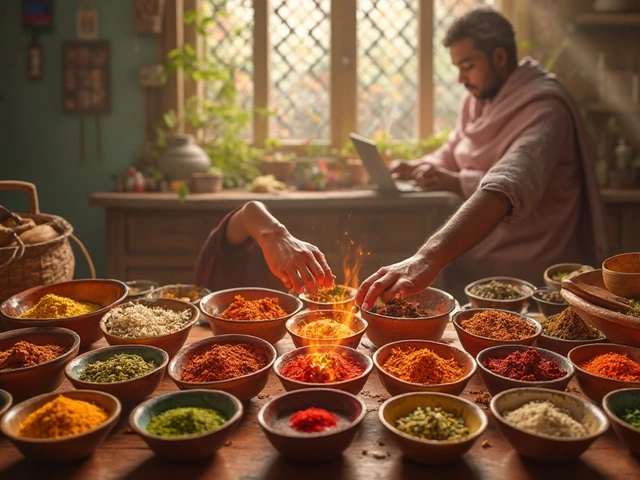Thinking about IVF? Well, you're not alone! It's on many people's minds, especially when it comes to that big question – age. How old is too old for IVF? Here's the deal: there's no official 'cut-off' age, but age definitely plays a big role in IVF success. Doesn't sound too helpful, right? But hang in there!
Women typically see the best results with IVF before the age of 35. It's like your biological clock's sweet spot for making babies. For most, fertility starts to decline in the late 30s and falls more sharply after 40. So, while you can technically pursue IVF well into your mid-40s and beyond, the chances of a successful pregnancy shrink. Harsh, but true.
But don't lose hope! The world of IVF is full of options, and many women are successfully having babies later in life. Whether it's using donor eggs or other fertility aids, clinics are pretty creative these days. If you're edging over 40 and considering IVF, there are strategies to up those odds. We'll dive into those next!
- Understanding IVF Age Limits
- Optimal Age for IVF Success
- Challenges and Considerations
- Tips for Older IVF Candidates
Understanding IVF Age Limits
When it comes to IVF age limits, the truth isn't all black and white. Age affects fertility and IVF chances, but it varies from person to person. Let's break down some key points that can help you get a clearer picture.
Why Age Matters
The success of IVF largely depends on the quality and quantity of a woman's eggs, which naturally diminishes with age. Women under 35 are more likely to have successful IVF treatments, with a success rate hovering around 40-50% per cycle. However, once you hit 40, these rates drop to about 10-20% per cycle.
So, does this mean there's an age cut—right? Not exactly. Everyone's biological clock ticks a little differently, and factors like health history and lifestyle can also be game-changers.
Legal and Clinic Age Limits
In some countries, clinics set a maximum age limit for IVF treatment, often around 50, but this can vary widely. It's always good to check with local fertility clinics about their policies, as some might have specific guidelines or suggestions based on your circumstances.
The Biological Perspective
If we purely look at it biologically, natural fertility peaks in the 20s and starts declining at 30, more significantly after 35. By the time you're 45, natural conception is pretty rare, but hey, technology to the rescue! Different fertility techniques, like using donor eggs, can extend the possibilities beyond typical age limits.
Here's a helpful breakdown:
| Age Range | IVF Success Rate |
|---|---|
| Under 35 | 40-50% |
| 35-37 | 30-40% |
| 38-40 | 20-30% |
| 41-42 | 10-20% |
| 43+ | 5-10% |
Men's Role in IVF
Don't think it's just women's age in the spotlight here. While men don't have a clear cut—fertility decline like women, age can affect male fertility too. Sperm quality tends to decline with age, which can influence IVF outcomes.
At the end of the day, understanding these age-related factors can help you make more informed decisions. If you're considering IVF treatment, it's always a good idea to have a thorough chat with your doctor or fertility specialist who can guide according to your personal health and circumstances.
Optimal Age for IVF Success
Wondering when is the right time to go for IVF? Ideally, women see the best results with IVF treatment in their late 20s to early 30s. During this period, the body is most receptive to the hormonal changes that come with fertility treatments. The healthier your eggs, the better the chances of success.
Let's break it down a little more:
- Late 20s to Early 30s: The 'golden age' for IVF. Egg quality and quantity are optimal, maximizing the probability of fertilization and successful pregnancy.
- Mid 30s: Fertility starts to see a gradual decline, but many women still find success with IVF. The risks associated with treatment and pregnancy are relatively low.
- 40 and Beyond: A challenging zone for IVF. At this age, egg quality diminishes sharply, making donor eggs a very practical option to consider. While pregnancies do occur, the chances are significantly slimmer.
Understanding What Works
Age isn’t just a number when it comes to IVF. The quality of your eggs and your hormone levels, which naturally decline with age, are core components in determining the success of the procedure. Biologically, it's like trying to fine-tune a complex musical instrument over time—it's still playable, but needs a bit more care and patience. Clinics may suggest additional tests to gauge these factors better, often making personalized treatment plans for each age group. So, listen to their advice—chances are, it'll make a big difference!
Success Rates by Age: A Quick Look
| Age Group | Success Rate (%) |
|---|---|
| Under 35 | 40%+ |
| 35-37 | 30-35% |
| 38-40 | 20-25% |
| Over 40 | 10% or less |
These statistics shed light on why age matters in IVF success rates. Fertility clinics will guide you with the latest tools and methods, but being informed about your own biological timeline helps set realistic expectations.
So what's the takeaway? If you're considering IVF and are in your 30s, it's probably a good time to start discussions with your fertility specialist to get a clearer picture. Knowledge, as they say, is power—and in this case, it leads to informed decisions that could enhance your fertility journey.

Challenges and Considerations
When diving into IVF, age isn't just a number. It can bring a good mix of challenges and considerations to the table, especially if you're heading towards the later side of the reproductive years.
Decreased Success Rates
Let's start with the hard truth. One of the biggest challenges for older women seeking IVF is the drop in success rates. While women under 35 have about a 40% chance of success per cycle, those numbers can slide to 15% or lower for women over 40. That doesn't mean it's impossible; it's just a steeper climb.
Increased Health Risks
Aging can also bring some health risks if you do conceive. The chances of complications like gestational diabetes and high blood pressure increase. Also, there's a higher risk for genetic abnormalities, which is why doctors often recommend genetic screening during IVF cycles for older women.
Egg Quality and Quantity
With age, the number of available eggs decreases, and so does their quality. Older eggs are more likely to have chromosomal issues, affecting the success rate of IVF. This is where egg freezing or using donor eggs might come into play. Donor eggs, usually from younger women, can significantly increase success odds.
Emotional and Financial Considerations
IVF isn't just a physical journey—it's an emotional and financial rollercoaster, too. The stress of repeated attempts, the wait for results, and the financial costs involved can take a toll. It's important to balance hope with practicality, and for this reason, sometimes counseling can be a valuable tool as you navigate these waters.
To make informed decisions, always have a transparent chat with your doctor about your individual circumstances. It's crucial to weigh the IVF success rates, possible fertility treatment options, and your health to decide the best way forward!
Tips for Older IVF Candidates
So, you've crossed over to what's kindly called 'advanced maternal age,' but you're still eager to dive into IVF? No sweat, plenty of folks are in the same boat! Let's look at a few tips to help boost your chances.
1. Choose the Right Clinic
Not all clinics are the same, especially when it comes to handling older candidates. Hunt down a clinic with a good track record for women over 40. Experience matters, and some clinics are simply better equipped for cases where age is a factor. Check their success rates and talk to other IVF grads if you can.
2. Embrace Lifestyle Changes
A little shift in lifestyle can go a long way. Things like a balanced diet, regular exercise, and reducing stress aren't just good for your overall health; they also make your body a friendlier place for embryos. Consider robbing the cradle of unhealthy habits and getting cozy with habits that nurture your body.
3. Explore Donor Egg Options
Let's be real, sometimes age means fewer viable eggs. But don't worry! Donor eggs can be a fantastic option. Many women using donor eggs have successful pregnancies, granting you the joy of carrying and birthing your baby with a solid shot at success.
4. Consider Genetic Testing
As you get older, the chances of chromosomal problems increase. Preimplantation genetic testing (PGT) can be a savior by identifying healthy embryos before transfer. It’s an extra step, but it can make a world of difference in ensuring a healthy pregnancy.
5. Keep Finances in Mind
IVF can be costly, and attempts can multiply that cost. Check with your insurance for what's covered and consider financial counseling from the clinic. Some clinics offer packages or discounts for multiple rounds, so make sure to ask!
6. Stay Informed and Flexible
Get all the IVF advice and stay updated on the latest in fertility treatments. Keep an open mind to new methods or changing plans if necessary. Flexibility can lower stress and open new doors, like trying advanced treatments or techniques as they become available.
Entering the IVF world as a seasoned player might feel daunting, but with the right steps and support, your chances aren't as bleak as they might seem. Armed with knowledge and a sprinkle of patience, you can confidently step into this journey.





